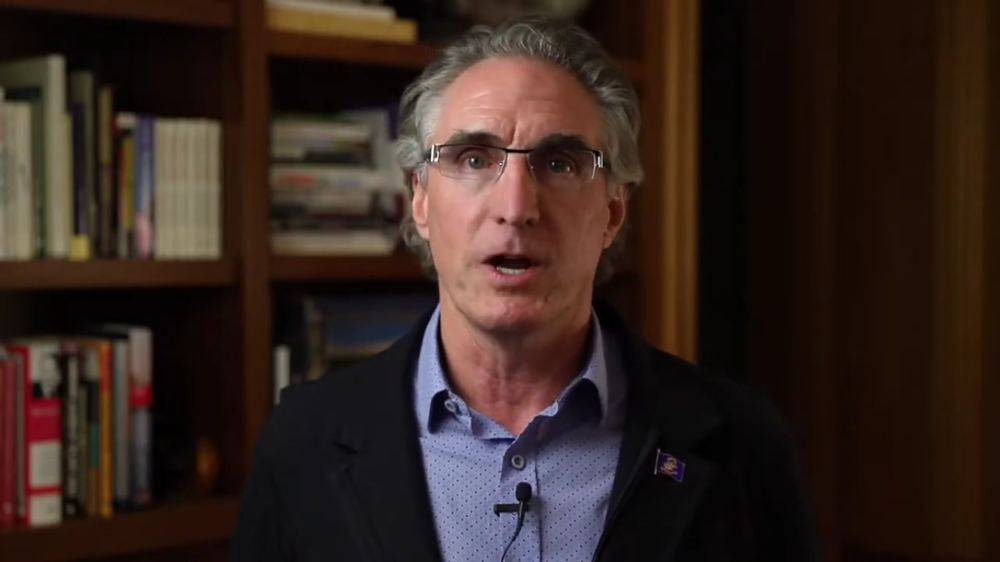
(LifeSiteNews) – Earlier this year, North Dakota Gov. Doug Burgum signed a law banning most abortions starting at six weeks. As a candidate for the Republican presidential nomination, however, he now says he would not do the same nationwide.
In April, Burgum signed a law banning abortion once a fetal heartbeat can be detected except in cases of rape, incest, or medical emergency prior to heartbeat detection, which he said at the time “reaffirms North Dakota as a pro-life state.”
Last week, Burgum announced he would be seeking the GOP’s White House nomination for 2024, billing himself as a “new leader for a changing economy” who can bring “small-town values” to Washington, D.C. But federal legal protection for the preborn will apparently not be one of those values, according to comments Burgum gave CNN on Thursday.
“I think the decision that was made returning the power to the states was the right one,” the governor said. “And I think we’re going to have — we have a lot of division on this issue in America. And what’s right for North Dakota may not be right for another state […] the best decisions are made locally.”
“Does that mean as president you would not sign a federal abortion ban?” CNN’s Poppy Harlow asked for clarification, to which Burgum replied, “that’s correct.” He added that “one of the most important things a CEO can do is really prioritize what that organization should focus on. And the federal government’s got a limited set of powers that they’re supposed to focus on.”
Burgum’s answer aligns him with the more establishment side of dueling opinions over how the Republican Party should proceed on abortion since U.S. Supreme Court overturned Roe v. Wade and allowed elected branches of government to directly legislate on the issue.
Fourteen states currently ban all or most abortions, in response to which abortion allies are aggressively pursuing a variety of strategies to preserve abortion “access,” such as easing distribution of abortion pills, legal protection and financial support of interstate abortion travel, attempting to enshrine “rights” to the practice in state constitutions, constructing new abortion facilities near borders shared by pro-life and pro-abortion states, and making liberal states sanctuaries for those who want to evade or violate the laws of more pro-life neighbors.
President Joe Biden has called on Congress to codify a “right” to abortion in federal law, which would not only restore but expand the Roe status quo by making it illegal for states to pass virtually any pro-life laws.
The pro-life movement has generally argued that the long-term goal was full, nationwide legal protection for the preborn, for both philosophical and practical reasons. Since President Ronald Reagan, the official position of the Republican Party platform has been to “support a human life amendment to the Constitution and legislation to make clear that the Fourteenth Amendment’s protections apply to children before birth.” But the GOP is currently divided on the question, between those who favor a more aggressive approach and those who blame abortion for the party’s underperformance in last year’s congressional midterm elections.
Former President Donald Trump, the current frontrunner for the GOP nomination, has repeatedly refused to commit to backing a federal abortion ban if reelected, after alarming pro-lifers by suggesting that state-level heartbeat laws may be “too harsh,” his campaign stating that abortion now “should be decided at the State level,” and blaming pro-lifers for the GOP’s underperformance in the 2022 midterm elections.
Trump’s top rival for the nomination, Florida Gov. Ron DeSantis, chastised Trump for not answering whether he would have signed the same heartbeat law that DeSantis did this year, and recently said “there is a role for both the federal and the state” in prohibiting abortion, while acknowledging “just a practical reality that the country’s just divided on the issue” that makes it harder for Congress to amass support for the same kinds of laws currently progressing through state legislatures.
As for Burgum, he is currently averaging below one percent in national polls for the GOP presidential nod, which is widely expected to go to either Trump or DeSantis.

